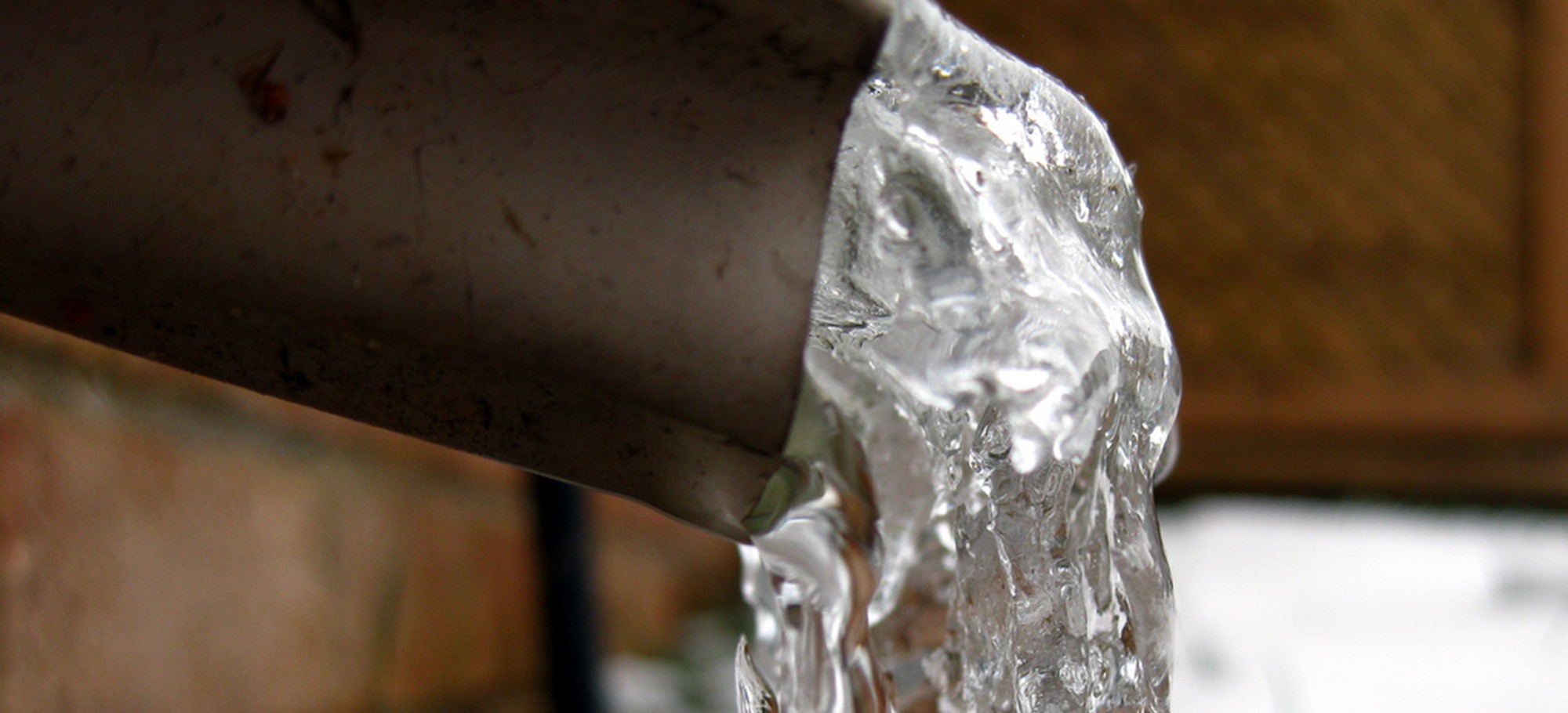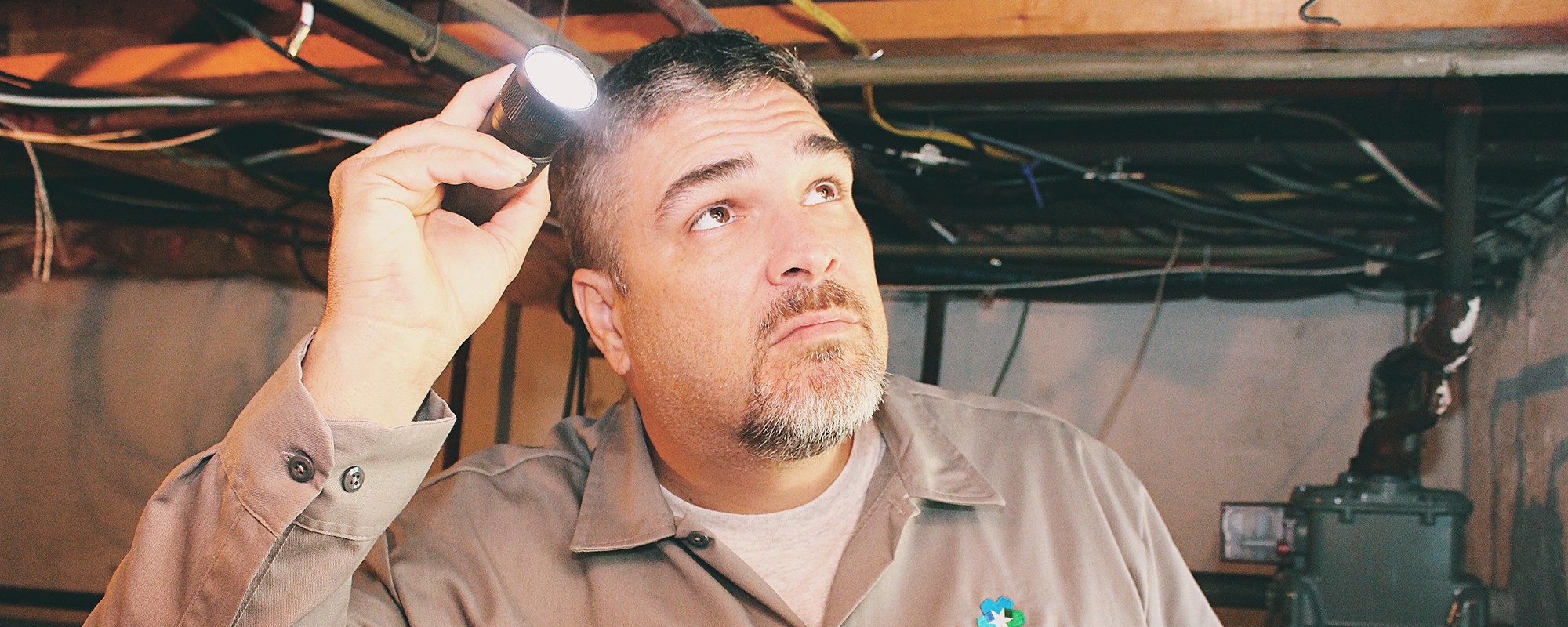
Winter water damage is both stressful and expensive to properly resolve. Untreated water intrusion compromises the structural integrity of your home, and it can lead to major mold development. As the temperature drops, your home grows more vulnerable to water damage. Learn more about the contributing factors to winter water damage so you can prevent winter water damage this winter season.
Excess Debris: During the fall months, there is more natural debris that threatens the efficiency of your home. Things like dead leaves, fallen branches from dying trees, and various other dead organic matter can clog your drainage systems and reduce the water flow on your property.
Plumbing Issues: Your plumbing is at its most vulnerable during the colder months. When the temperature drops, your pipes are at the highest risk of bursting and causing major water damage.
Winter Storms: Winter storms are harsh and unforgiving. It will be very beneficial, in the long-run, to dedicate some time to make sure your home is properly prepared to take on an aggressive winter storm. You and your family should always set aside some time at the beginning of the season to go over home safety tips for winter storms in New Jersey.

Tips to Prevent Winter Water Damage This Winter Season:
To prevent winter water damage this winter, take the time to prepare your home for the fall and winter months. Do keep in mind that it’s advised that regular checks and maintenance should be completed year round to prevent major water intrusion in your New Jersey property. The colder months are less forgiving and require extra diligence. Cold weather is for cozying up in a fuzzy blanket with hot chocolate and a good movie. You can’t risk having your in-laws over for Thanksgiving Dinner and have a pipe burst right over poor Aunt Meredith. That would be terribly embarrassing.
Gutter Maintenance: Keep your gutters clean and in good condition to prevent winter water damage.
- Remove excess debris to prevent clogs– Clear cutters ensure efficient drainage to prevent overflow and flooding.
- Consider gutter guards- Gutter guards will screen out debris while still admitting roof runoff.
- Sufficient downspouts- You need to make sure that you have an adequate number of downspouts to ensure sufficient drainage away from the property. Downspouts at every 40 FT of gutter will help to avoid overflows during heavy rainfall.
- Downspout extensions- All water should be flowing AWAY from the property. Otherwise, water will collect and pool at the foundation of the home, putting you at risk for foundation leakage and seepage. If the water is not flowing away from the property, downspout extensions will divert the runoff away from the property. Ideally, water should be discharged at least 3FT away from the house.
- Check the conditions of your gutter– Gutters should be installed with a slight pitch. This encourages optimum drainage. Inspect your gutters to make sure that they are not sagging. Sagging gutters disrupt proper waterflow.
Prepare your Pipes: Learn how to protect your pipes this winter to prevent winter water damage.
- Fix leaky pipes– Inspect your pipes and check for leaks. Weak spots in your pipes will make them vulnerable to bursting when water freezes and expands. Small leaks can be easily patched. If you suspect a bigger leak, call in a plumber to get it resolved professionally.
- Insulate Pipes– If a pipe freezes, the expansion can easily cause your pipe to burst and leave you will a costly water damage repair. Pipes located outdoors and pipes running through unheated areas of the home (i.e: basement, attic, and crawl space) are especially vulnerable to freezing. Pipe insulation can help to prevent the pipes from freezing.
Disconnect & Drain Outdoor Water Systems: Prevent winter water damage by draining out all your exterior water systems.
- Store your gardening hose– You should rain all outdoor faucets. Hoses should be disconnected and stored away safely. Un-drained water can freeze and lead to future damage
- Draining all water systems– Properly drain water from pools, ponds, irrigation systems, and water sprinkler supply lines. Be sure to bring in a professional when necessary.
Inspect Heaters: Well maintained water heaters, HVAC systems and other appliances help to prevent winter water damage.
- Water Heater- Water heaters tend to work harder through the colder months. Before it gets too cold, you should inspect it to make sure that it is operating at its full capacity. There should be no signs of deterioration: rust, scale, and puddles of water.
- Heating System– On the topic of heating up, you should take this time to check your heating system to make sure that everything is in good condition and operating properly. No one wants to be in a home with freezing temperatures. In addition, an indoor temperature of 55 degrees or higher will further aid the prevention of frozen pipes.
Service Your Sump Pump: The purpose of a sump pump is to help prevent basement flooding from water intrusion. Check that your sump pump is working properly and to its full capacity. Its discharge line is clear. If there seems to be any technical problems, call a plumber to properly address the problem.
Inspect the Roof: A well maintained roof will protect your home from water issue and prevent winter water damage.
- Make sure that your roof is in good condition going into the colder months. With harsh winter weather, a damaged roof can lead to serious, costly issues down the road.
- Check for any missing or discolored shingles, soft spots, and any signs of visible damage.
- Be sure to also inspect soffits/eaves for signs of water damage, rot, and/or mold.
- If you identify anything suspicious, you might want to consider calling in a professional to have your roof inspected. The fee is worth it if it means avoiding even more costly damages in the future.
Assess Quality of Foundation: A well maintained foundation ensures structural integrity and protects against water intrusion this winter.
- Make sure your foundation walls are free of cracks or anything allow water intrusion or compromise the structural integrity of your home.
- Manage the draining around your foundation. Any water runoff should be drained away from the property to avoid water collection and flooding around the property, which risks water intrusion through the foundation.
General Maintenance: Routine maintenance is key to protecting you property and ensuring clean, safe and livable conditions for your and your family.
- Complete a general assessment of the property and identify any areas of opportunity for repairs. Early fall, before the temperature drops completely, is a great time to complete general repairs to avoid water damage and mold damage.
- IE: Find and fix all leaks throughout the home.
- Make sure that windows and doors are adequate in keeping the elements out.
Review Homeowners Insurance: This applies for any time of year. Set aside some time to take a peek at your homeowners insurance and refresh yourself on your coverage. We never want bad things to happen, but it is always best practice to be prepared and know what insurance will cover.

Winter Water Damage Restoration South Jersey
A lot of unexpected things can go wrong with your home during the winter months in South Jersey. The only thing you can do, is control the controllables. Invest in the time to implement preventative measures throughout your NJ property to avoid winter water damage. South Jersey homeowners should conduct regular maintenance checks to prepare your home for the cold months to come. However, sometimes, despite all the preparing you do, some emergency events are inevitable. When you find unexpected water intrusion, call a professional water restoration company in New Jersey to complete emergency what removal safely and effectively.


